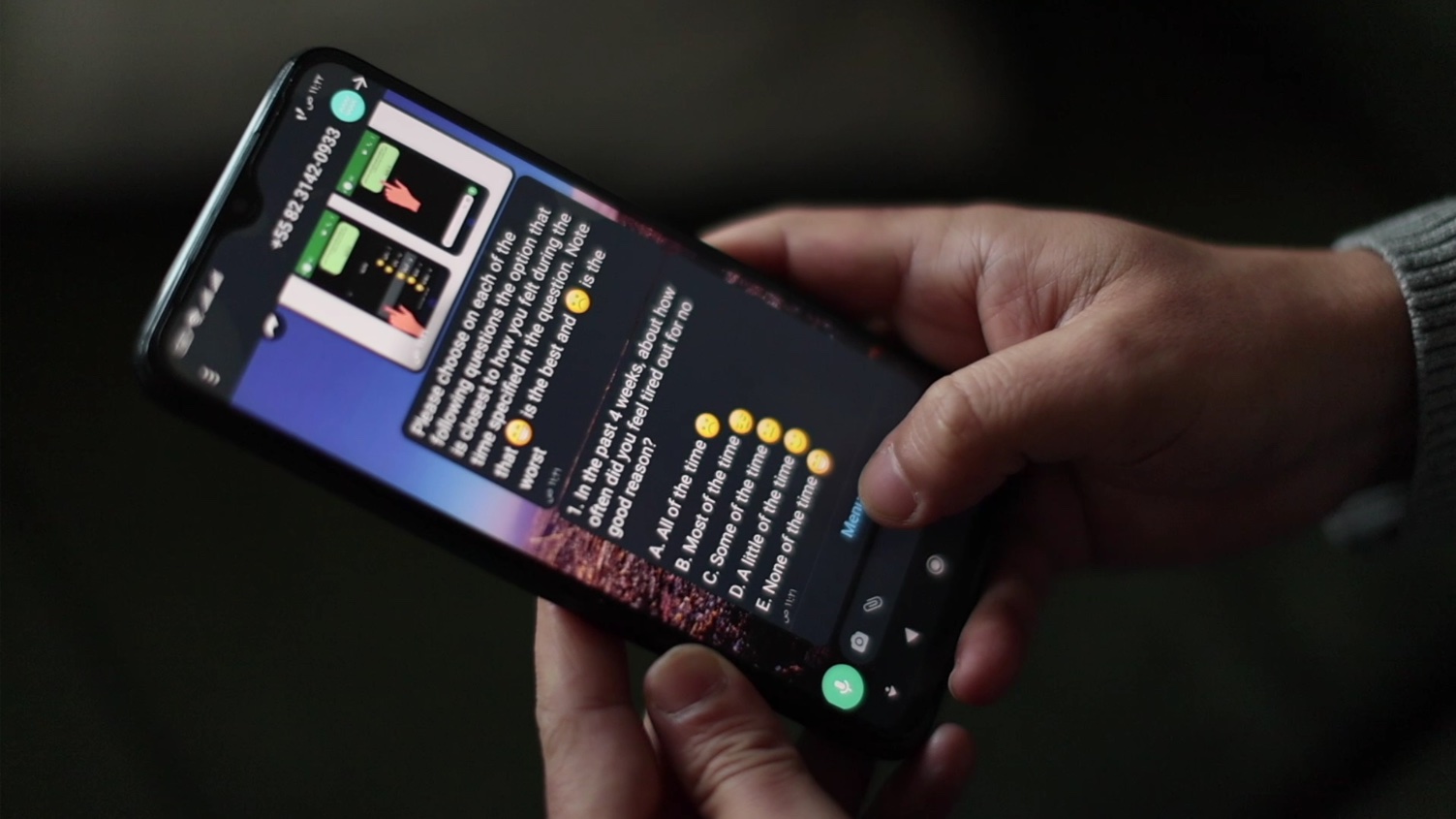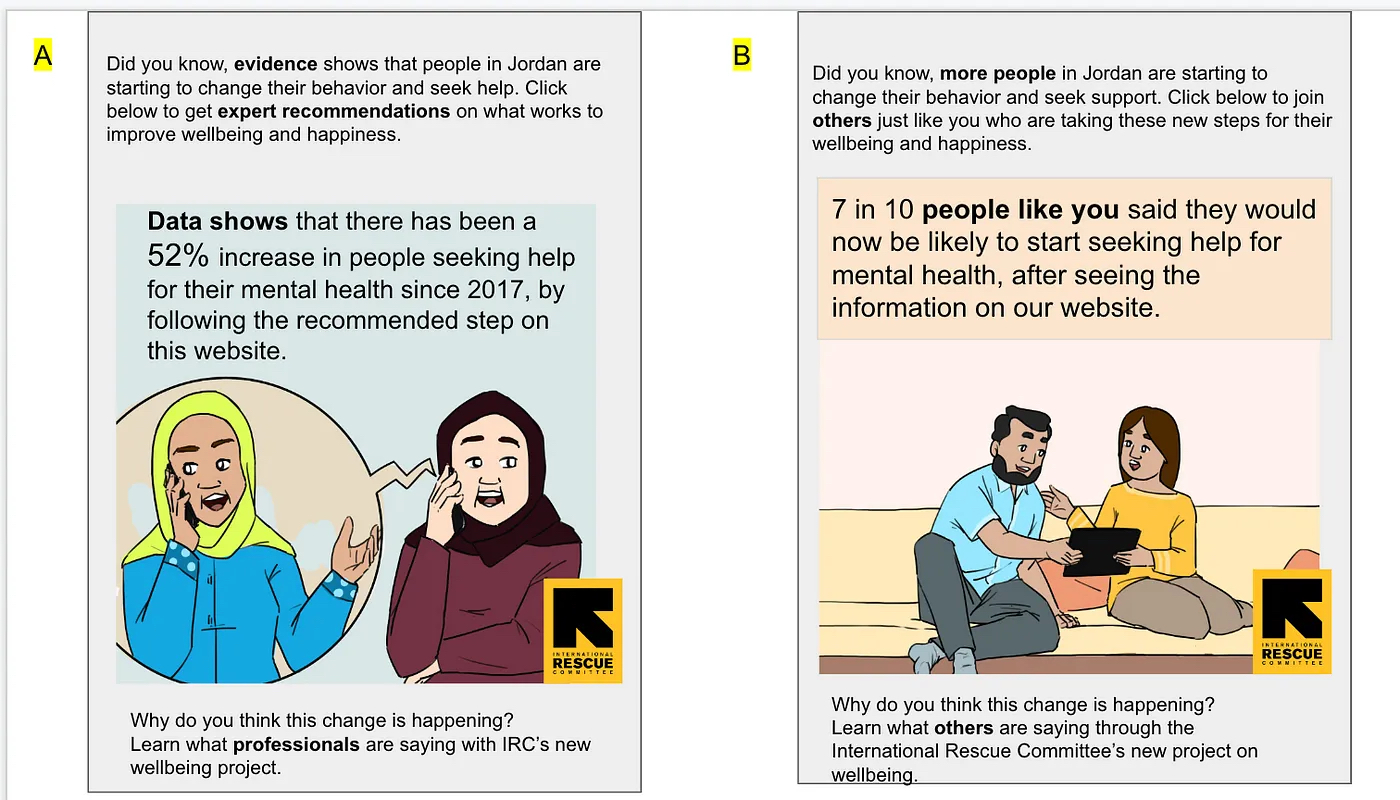InforMH
Using behavioral science and human-centered design to bridge the information and behavioral gaps that prevent people from seeking mental health and psychosocial support.
Mental health in emergency and refugee contexts
Mental health is a critical issue that affects people worldwide and becomes even more crucial in emergency and refugee contexts. In Jordan, a country hosting the second largest number of refugees per capita and still recovering from the COVID-19 pandemic, a significant portion of the population is affected by lasting distress. Surveys before the pandemic indicated that around 57.0% of refugees and 33.9% of Jordanians in urban areas were already experiencing lasting distress, including higher rates of depression, anxiety, and PTSD (IMC, 2019). However, some reports suggest that 94% of people with mental health conditions in Jordan are not receiving treatment.
Why is finding a solution critical?
Unmet mental health needs can spill out across society--negatively impacting employment, poverty, safety, educational attainment, family stability, healthcare systems, and more (Alegria et al, 2018). Barriers to accessing mental health services include a lack of awareness surrounding the need for care, stigma around mental health, and lack of trust in health services. As in many countries, mental health remains a taboo topic in Jordan, with significant cultural barriers to identifying challenges and seeking care. Urgent action is necessary to bridge these gaps and reach people with the necessary support. Research and innovation can enable mental health services to meet people where they are and put forward new, community-driven solutions.
How was the solution developed?
The Airbel Impact Lab has developed a program called "InforMH", or “Yalla Nihki” in Arabic, to address the treatment gap in mental health services. Unlike other programs, the InforMH project takes an “ecosystem” approach, linking people in Jordan to various formal and informal existing services rather than duplicating those offerings, and complementing that with self-care practices and behavioral science strategies.

InforMH deploys encouraging outreach messages, backed by behavioral science, through digital and in-person platforms. The program starts by inviting people to take an online self-assessment to determine their mental health needs. Based on their results, people are provided with tailored recommendations to pursue either formal, informal, or self care. Evidence-based and behavioral science-informed messaging and reminders encourage participants to follow through with recommended care. The entire package of interventions is delivered using a Whatsapp chatbot. This helps support people along an ongoing journey, by reaching out to them with daily messages on platforms they already use (eg, WhatsApp), providing reminders, encouraging action and seeking help.
The program was co-designed and tested iteratively with hundreds of community members in Jordan over the past three years. For example, A/B testing was used to determine the most effective messaging to encourage people to engage with the program. Two versions of the website were developed, each with different framing woven throughout. Option A used messaging focussed on endorsement by respected experts and professionals, while Option B used messaging focussed on peer endorsement. Both professional and peer endorsement are backed by behavioral science evidence.
We reached over 400,00 people with this test on Facebook, of whom 3,700 clicks through to our website, which included mental health psycho-education content, self-care recommendations and a button to call a hotline. Peer endorsement led to 14% more unique visitors to the InforMH website and those who went to Website B spent 33% more time on it. Since Option B performed better at encouraging behavior change among the wider Jordanian population, we integrated this messaging, promoting peer endorsement by other relatable people in Jordan, throughout many areas of the program.

How will this solution be adapted/scaled for future use?
Feedback from users has been positive, with participants finding the program personal, informative, and accessible. Many participants reported they felt cared for by the program, noting that they liked having the program check in on them everyday. However, there were some technical glitches and ongoing behavioral barriers that need to be addressed. In 2024, these learnings are being integrated into an improved program that will be delivered as a 3 month long “pilot study”, with approximately 400 people across the country to learn about how the program works in real world conditions. These next phases of this project will set us on a path to launch our intervention nationwide — with the potential to benefit 1.65 million people in Jordan with unmet mental health needs. There is potential to scale it globally to address the mental health treatment gap.
Project Timeline
Incorporating feedback and changes to the program and fundraising for the next phase of the project, which is the Pilot study.
Ran a test run of all the above components with 29 participants and conducted interviews with 106 pharmacy visitors at 11 pharmacies across Jordan.
Donors
- Airbel Innovation Fund